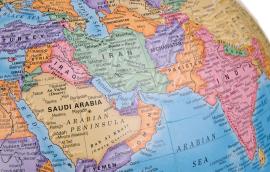Revamping Energy Policy in Saudi Arabia: A View to the Future
The accession of a new king in Saudi Arabia and the kingdom’s intervention in Yemen have overshadowed important moves to reform two of the kingdom’s key institutions. Incoming King Salman has taken steps to prepare Saudi Arabia for a new generation of leaders, both within the royal family and among the world’s largest oil export sector and its marquee company, Saudi Aramco. The changes involve installing new personalities into key positions and shifting the roles of long-serving managers. "Overall, the moves ought to enhance the resilience of the kingdom and its economy by shifting leadership responsibilities to a younger generation," writes fellow Jim Krane.
Jim Krane June 9, 2015







